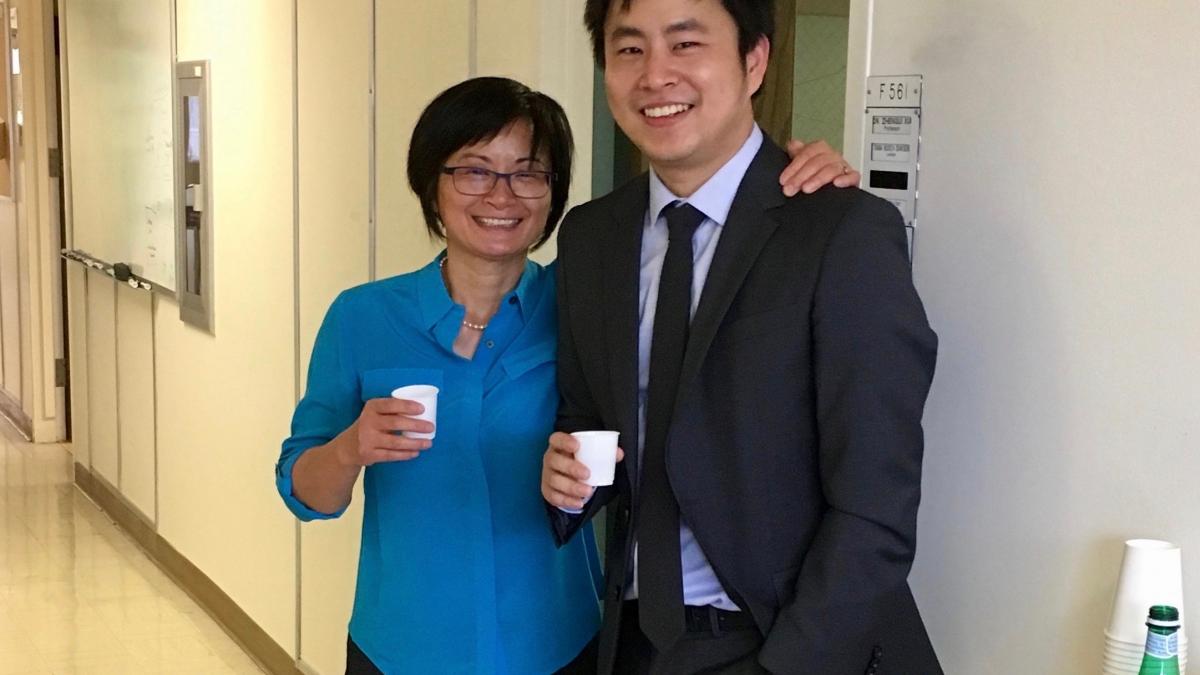
Dr. Wang (right) celebrates his thesis defense with his advisor Dr. Zhengui Xia
Congratulations to Superfund Research Program (SRP) trainees, Dr. Hao Wang and Jogen Atone for being awarded a mutual exchange KC Donnelly externship! Dr. Wang is a trainee on the University of Washington (UW) SRP Project Two supervised by Dr. Zhengui Xia. Jogen Atone is a trainee with the University of California, Davis (UC Davis) SRP under the supervision of Director Dr. Bruce Hammock.
The KC Donnelly externship will support Dr. Wang to spend two months training at the UC Davis SRP under the guidance of Dr. Hammock while Atone will train with Dr. Xia at the UW SRP.
Dr. Wang is interested in the potential mechanisms by which cadmium impairs adult neurogenesis, a process that generates new, functional neurons in the adult brain. Through the externship, he will learn methods of analytical chemistry to examine the role of lipid metabolism, a regulator of adult neurogenesis, as a potential mechanism of cadmium neurotoxicity.
“The KC Donnelly externship will equip me with a new set of analytical chemistry skills for analyzing metabolites,” said Dr. Wang. “Conducting my lipid analysis study in cadmium treated adult neural stem cells will provide new insight into the mechanism of cadmium toxicity on adult neurogenesis.”
Meanwhile, Atone will spend two months at the UW SRP studying under the guidance of Dr. Xia.
Atone's research focuses on the mechanisms of neurotoxicity associated with environmental toxicants like paraquat and rotenone. He also studies whether and how increasing lipid mediators can limit neural damage caused by these toxicants. His externship with the UW SRP will allow him to continue this line of study in a mouse model using neural stem cells isolated from the hippocampus and behavioral assays such as the novel object recognition test and contextual fear memory test.
UW SRP is excited to welcome Atone to the Xia lab as soon as conditions will allow for safe travel.

